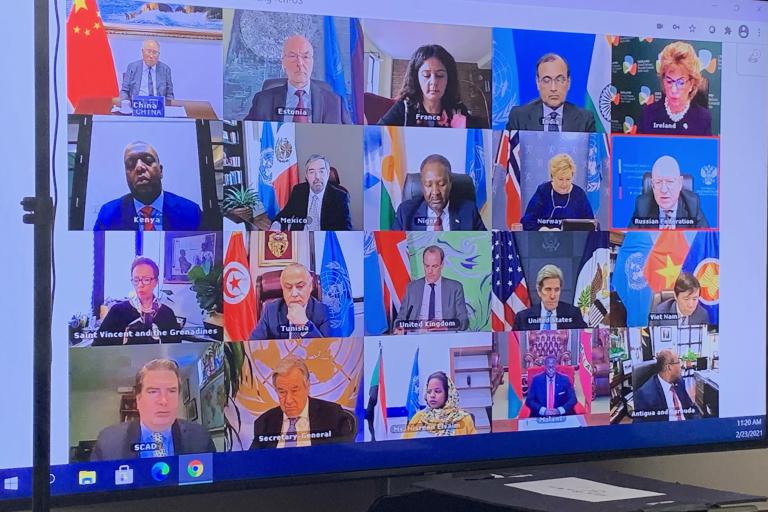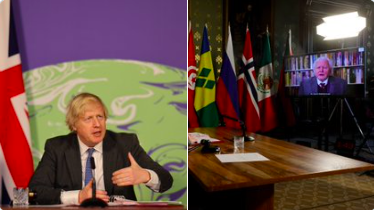UN Security Council debates climate change

More collective action is needed to address the risks climate change poses to global peace and security, United Nations Secretary-General António Guterres told a high-level Security Council debate on 23 February.
"The last decade was the hottest in human history. Carbon dioxide levels are at record highs,” said the UN Secretary-General, quoting WMO figures. He said that extreme weather and climate “shocks not only damage the environment on which we depend; they also weaken our political, economic and social systems.”
“The science is clear: we need to limit the global temperature increase to 1.5 degrees by the end of the century,” the Secretary-General said.
“And our duty is even clearer: we need to protect the people and communities that are being hit by climate disruption. We must step up preparations for the escalating implications of the climate crisis for international peace and security.”

A matter of when, not if: Boris Johnson
Heads of State and Government, as well as other senior political leaders, participated in the Council meeting, which was convened by the United Kingdom, co-host of the latest global climate change conference, known as COP26, taking place in Glasgow, Scotland, in November.
UK Prime Minister Boris Johnson chaired the online meeting, calling for action now.
“Whether you like it or not, it is a matter of when, not if, your country and your people will have to deal with the security impacts of climate change”, he said, urging them to show the global leadership necessary to keep the world safe.
“If we continue on our current path, we will face the collapse of everything that gives us our security: food production, access to fresh water, habitable ambient temperature, and ocean food chains,” he said, adding “and if the natural world can no longer support the most basic of our needs, then much of the rest of civilization will quickly break down.”
"It is time to start treating the climate crisis like the urgent security threat it is. We bury our heads in the sand at our own peril," US Special Presidential Envoy for Climate John Kerry told the meeting.
The USA formally rejoined the Paris Agreement on Climate Change on 19 February.
The UN Secretary-General has repeatedly referred to climate change as “the defining issue of our time”.
In his briefing to the Council Mr. Guterres outlined the need for action in four priority areas: prevention, protection, security and partnerships.
Under prevention, he emphasized the need for countries to achieve the goals of the Paris Agreement on climate change, which seeks to limit global temperature rise to 1.5 degrees Celsius above pre-industrial levels.
“The climate crisis is the multilateral challenge of our age”, he said, underlining the need for unparalleled global coordination and cooperation.
“I urge Council members to use their influence during this pivotal year to ensure the success of COP26, and to mobilize others, including international financial institutions and the private sector, to do their part.”
UN News story is here










